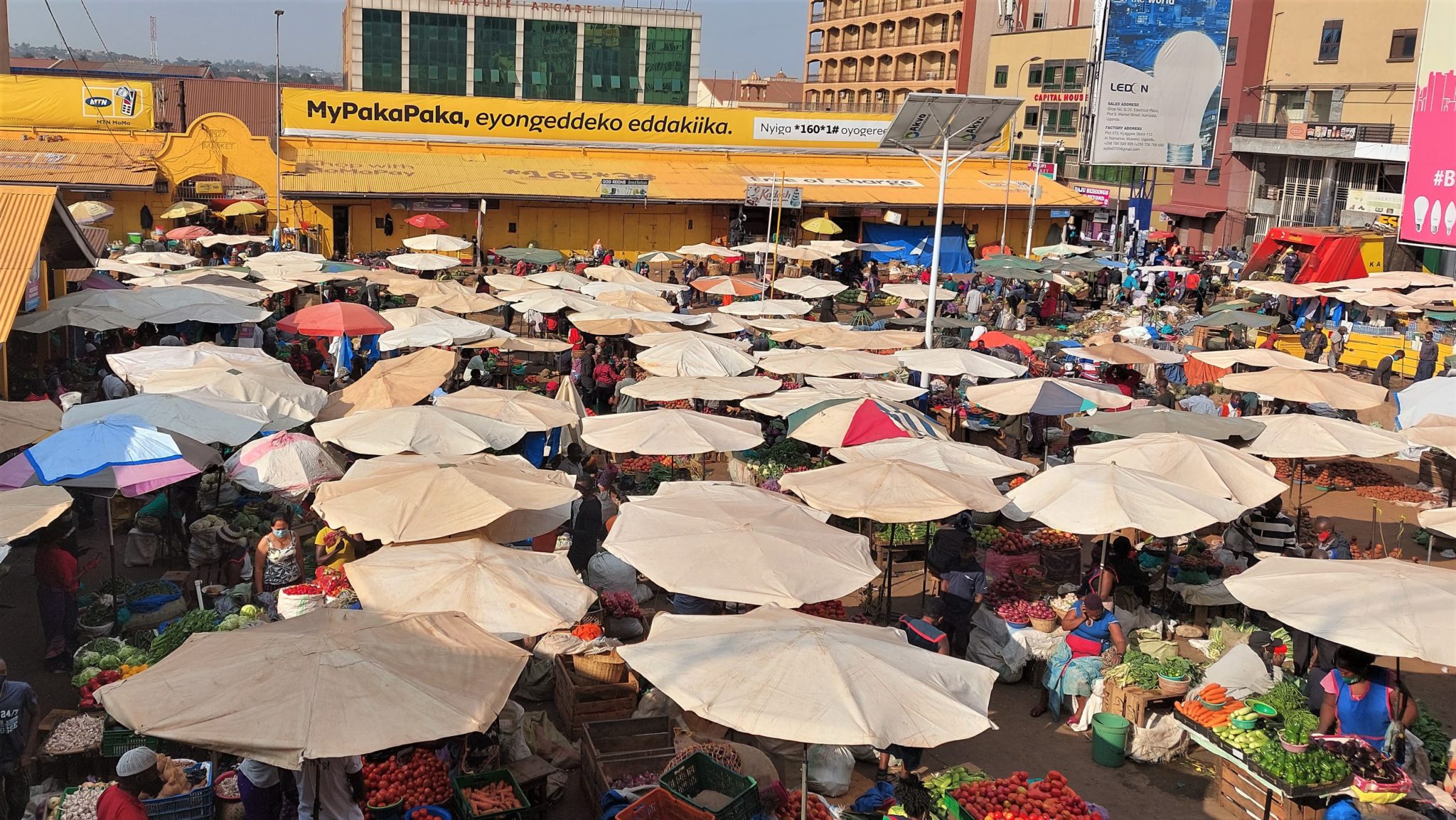An abridged report written by the Makerere University-based think tank, the Economic Policy Research Centre (EPRC), lays bare the fullest and most detailed insight to date into the impact of the Covid-19 pandemic and the related lockdowns on the micro, small, and medium-sized enterprises (MSMEs) in the country.
The report titled ‘The socio-economic impact of Covid-19 on business enterprises in Uganda’, found that many permanent businesses closed due to direct and indirect Covid-19-related factors. Covid-19 episodes also resulted in intermittent business closure of complete and partial nature.
At the onset of Covid-19 in March 2020, the complete business closure rate was higher at 67 per cent compared to the partial business closure rate of 11 per cent.
By the end of the second Covid-19 lockdown, businesses had not regained their pre-Covid-19 conditions, and the second lockdown reversed the progress of business and/or economic activity recovery, according to the EPRC report. Enterprise performance was weakened throughout the Covid-19 episodes with the most severe effects felt in the hospitality and education sectors as well as in micro and small enterprises.
Overall, 41 per cent of jobs were lost in the MSMEs under the study. Results suggest a higher vulnerability of female and young workers in the MSME job market. The overall business resilience index is low at 60 per cent below the threshold for robust business resilience.
“The emphasis on MSMEs is because the sector plays a significant role in the economy in terms of employment and income or source of livelihood that drives economic growth with over 20 per cent contribution to GDP. It constitutes at least 90 per cent of Uganda’s private sector, with a substantial contribution to manufacturing output of at least 80 per cent,” the report found.
The report further notes that any distortion in the MSME space for example because of the Covid-19 pandemic has far-reaching effects on the entire economy. Thus, MSMEs should be the primary targets of government interventions to catalyze Uganda’s post-Covid-19 economic recovery.
Effect on enterprise operations
The key findings of the report show that operations of most enterprises were severely interrupted by Covid-19 and its containment measures. The interruption of operations was mainly manifested in business relocation, unreachability due to locations that cannot be traced, and confirmed business closure.
One-way Covid-19 interrupted business operations was exhibited by enterprises being unavailable. Most of such enterprises closed (40%) and could not be traced (39%). There is a high likelihood that the enterprises that could not be traced had also closed.
This implies that about 79 per cent of the enterprises which were unavailable for the survey potentially, closed business permanently. The report suggests that almost half of the enterprises that closed business attributed this to Covid- 19-related difficulties. The reasons for business closure were direct and indirect Covid-19 factors.
“The direct Covid-19 factors are those that were specified by the sources (46%); and the indirect Covid-19 factors include eviction from business premises and death of business owners, which altogether amount to 16 per cent. Combined, the direct and indirect Covid-19-related factors account for more than 60 per cent of complete permanent business closures. Transition into other businesses was also majorly triggered by Covid-19 and related restrictions.”
Effect on enterprise performance
The study also showed that the pandemic affected MSMEs performance in terms of sales, revenue, business turnover, prices, and profitability with close to 90 per cent of the enterprises reporting a reduction in sales revenue in the first Covid-19 lockdown period compared to the previous six months, with an average reduction of 68 per cent.
The reduction in sales revenue affected all enterprises in all sectors. However, the most affected were hospitality, education, and small and micro-level enterprises compared to medium enterprises.
The average revenue reduction was the highest in the education sector at 75 per cent and 71 per cent for small enterprises in the first lockdown period, and these two were consistently the most affected in terms of sales revenue reduction even in the second lockdown period.
Business turnover has also been consistently low. “We observe similar results for the profitability of the enterprises, although the extent of profitability reduction is more remarkable. Overall, about 92 per cent of the enterprises encountered a reduction in profitability in the first lockdown period, with an average reduction in profits of 71 per cent,” the report reads.
Although 92 per cent of the firms in the education sector also reported a reduction in profitability, the average reduction in profit level was as high as 81 per cent; the highest magnitude compared to the rest of the sectors. Accordingly, the education sector, as expected, was also the worst affected in terms of profitability decline.
“In the second lockdown, no firm in the education sector experienced an increase in profitability, implying that they continued experiencing the reduced profitability level registered in the previous periods or had a further reduction in profits.”
The study explained the low or reduced profitability of the enterprises as caused by the upsurge in the cost of inputs or supplies. The increase in input costs was not accompanied by an increase in the prices of goods charged by the MSMEs.
Generally, the prices charged by the enterprises remained the same, although some enterprises experienced price reductions due to low demand. The combination of high input (supplies) costs and constant or reduced prices inevitably lowered profitability.
Job losses
The study also examines the adverse effect of Covid-19 and related restrictions on employment which was felt through the loss of jobs and wage cuts. Overall, jobs in the MSMEs under the study reduced from 1,026,000 to 601,000, representing a share of 41 per cent or 425,000 jobs lost.
Of these, 241,000 jobs were lost between the period before Covid-19 and the end of the first Covid 19 lockdown, and 184,000 jobs were lost between the first lockdown (from the end of the first lockdown period) and the second lockdown.
Except for manufacturing, which had a job gain of about 4,000 between the periods at the end of the second lockdown, the rest of the sectors experienced consistent job losses. The education sector had the largest share (50%), followed by hospitality (34%).

Most people employed in schools were laid off due to school closure (particularly private schools were hit hardest), and tourism or hospitality because of the low sharp decline in tourist arrivals, complete closure of bars and restaurants, and low demand for hotel services.
The study further reveals that a large share of jobs lost was among the youth employees, about 44 per cent of the youth lost their jobs. This was an increase from a 26 per cent job loss among the youth in the first Covid-19 lockdown. Job losses were also more prevalent among female workers (43%) compared to male workers (40%).
A similar pattern is observed in all Covid-19 episodes, implying a high vulnerability level for female and young workers in the MSME job market. Besides job losses due to employee lay-offs, the enterprises also pursued a reduction in payroll due to Covid-19-related reasons.
Overall, more than half (52%) of the enterprises pursued payroll reduction to ease the financial stress wreaked upon them by Covid-19 and related restrictions. Payroll reduction was more prevalent among education sector enterprises (schools) at 59%, compared to hospitality/tourism (50%) and manufacturing (38%).
Payroll reduction was also more common among medium-sized enterprises (87%), followed by small-sized enterprises (60%) and micro-level enterprises (44%).
“The reduction in payroll that occurred in the first Covid-19 lockdown led to a wage cut by 61% on average. The firms that implemented further wage cuts in the second lockdown increased the magnitude of wage reduction to 73%, higher than the wage cut implemented in the previous Covid-19 episodes.”
The EPRC study, therefore, gave key policy considerations which include; the government addressing the cost of doing business during economic shocks, strengthening structures for better organization and coordination of MSMEs, gender responsive social protection policy responses to support job and income security of women and youth, targeting support interventions towards business survival, building business resilience by improving adaptive ability, leveraging knowledge and information, as well as external business resources for enterprise growth and development, MSME planning and preparedness capability and innovation and diversification capability.
According to a study by the Federation of Small and Medium sized Enterprises (FSME) in Uganda about 1,890 micro, small and medium enterprises (MSMEs) out of 4,500 temporarily or permanently closed down business due to inability to pay suppliers or financial debts with many of these being in trade and manufacturing. However, 2,610 MSMEs out of 4,500 remained operational, the negative effects of Covid 19 notwithstanding.
Business relocation
This report further showed that out of 2,754 MSMEs owners interviewed on the impact of the second lockdown, 1,349 said they struggled to make ends meet, 1872 relied on their business savings to make ends meet whereas 578 sold off their business assets to make ends meet.
Some 330 indicated that they feared they might default on their loan obligations. With the prolonged lockdown, traders were forced to remove their merchandise from shops in fear of accumulating rental costs and registering worsening losses caused by accelerated worn outs.
These forced traders to begin transacting online via Facebook and WhatsApp and door-to-door using motorcycles and vehicles to enable them to survive in the lockdown.
This article was published in the Observer Newspaper in Uganda on October 5, 2022 (coverage for COVID-19 impact on MSMEs in Uganda supported by IDRC Canada)

